- Home
- About
About the project
Overview
With the Covid-19 pandemic impacting all aspects of life and especially school education, this project addresses a very specific need: to upskill the competences of school leadership teams to develop and implement digital strategies in their schools.
There is a strong need to train school leaders to understand the complexities of digital transformation, while also offering additional support to teachers and students to enhance their digital skills and competences.
Aims & Objectives
The project aims to upskill the school leaders’ competencies to develop digital transformation strategies and support the teachers and students to improve their digital skills and competencies.
Specific Objectives:
- Support School leaders and staff to develop a digital strategy and their digital skills.
- Develop school leadership teams’ competencies for leveraging free digital tools and resources for school improvement.
- Develop a practical toolkit aligned with the DigCompEdu, with practical, step-by-step guides on how to design and deploy a strategy.
- Help schools to adapt and use the SELFIE and TET-SAT tools to support the digital strategy development.
Methodology
The consortium of the project has developed a compendium of learning resources and activities focusing on strategic skills and tools, in order to support the development of a digital policy to be deployed by school leaders, involving school staff, teachers, learning designers, and educational technologists in the process.
Outputs
Digital Transformation Strategy Toolkit for school leaders
Training Course for school leaders on developing digital transformation strategies
eLearning platform with mobile app on leading with technology
Collection of case studies and policy recommendations
Partners

The Institute of Technology and Development (ITD) is a non-profit, non-governmental organization dedicated to do applied research and to develop innovative business and technology ideas and systems, supporting development of a digitally enhanced innovation ecosystem and its growth and empowerment. ITD was established as a spin-off organization of the Centre of IST, Sofia University. ITD aims at supporting national and international governmental, non-governmental and industrial organizations for applying policies and strategies related to new technologies.
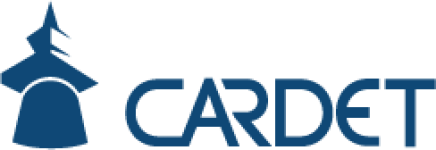
CARDET (Centre for Advancement of Research and Development in Educational Technology) is an independent, non-profit, non-governmental, research and development organization based in Cyprus. It is one of the leading research and development centres in the Euro-Mediterranean region, with global expertise in project design and implementation, capacity building, and e-learning. The centre’s mission is to inspire next-generation education, and promote research, innovation, and development through evidence-based practices, cutting-edge research, and empowered people. CARDET is independently affiliated with universities and institutions from around the world, such as the University of Nicosia, and the International Council of Educational Media. CARDET is ISO 9001 certified for quality in management, research, and education services. The Centre has a long-standing experience in digital learning, virtual schools, and online education and has developed and implemented school education projects and conducted large scale evaluations of education programs around the world.
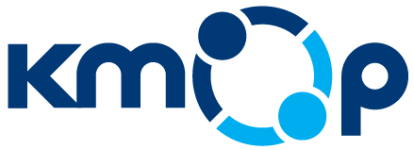
KMOP, founded in 1977, is one of the oldest civil society organizations in Greece, with an extensive experience in supporting people through the provision of direct social services and the implementation of social initiatives. Over the last years, the organization has established international presence, being active today in 7 countries, and operating permanent offices in Athens, Thessaloniki, Brussels and Skopje. The organization is dedicated to making a positive impact in society through in-depth research and the design of innovative interventions that address critical social issues, enlighten public debate and enhance policy formation, nationally and internationally. KMOP is missioned to contribute to effective social policy design and to lead initiatives that promote individual well-being, eliminate vulnerabilities, and foster social justice and sustainable growth. We actively support individuals and communities by providing direct social services, implementing innovative programs, offering educational opportunities, as well as focusing on research and policy design based on our extensive experience in the field.
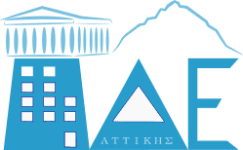
The Regional Directorate for Primary and Secondary Education of Attica (RDPSEA) is responsible for the coordination
and supervision of around 3.500 schools, 55.000 teachers and 500.000 students in the region of Attica. It collaborates
with 14 Primary and Secondary Education Directorates, 13 Centres of Educational and Counseling Support, six Regional
Centres for Educational Planning, four Environmental Education Centres and twenty Educational Coordinators of Refugee
and Migrants students. RDPSEA works towards creating a whole-school approach which involves creativity and
innovation in practice under the principles of equality and justice with respect to individuality. Initiatives, among others,
include innovative pedagogical practices for different curricular subjects, inclusion of the disadvantaged, pedagogical and
ICT support for schools and relevant stakeholders, professional development of teachers, students’ skills reinforcement,
online training activities for schools and online support and teachers.
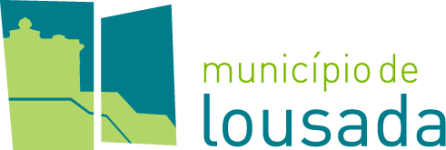
The Municipality of Lousada is an institution of local public administration. It aims to pursuit the interests of the population in the territorial space of Lousada Council. The Municipality mission is to define guiding strategies and execute the resulting municipal policies towards sustainable development of the municipality, contributing to the increased competitiveness of it, in local, regional and national levels, through measures and programs in various areas of their competence, promoting the quality of life of its citizens and ensuring high standards of quality services.
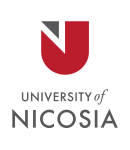
The University of Nicosia (UNIC) is the largest university in Cyprus with over 14 thousand students, some 300 full time faculty and 700 part time in a variety of undergraduate and post-graduate programmes in education, social sciences, computer science, engineering, business, communications, and multimedia.
It currently has over 11000 students enrolled and around 28% of its student population are non-Cypriots, something that makes it a multicultural institution where diversity and pluralism are valued.
We have strong expertise on special education, educational psychology, adult education, technology-based learning, science education inclusive education, school improvement, social inclusion, intercultural education, teacher development, ICT, e-learning, distance education, collaborative inquiry, research, and evaluation.
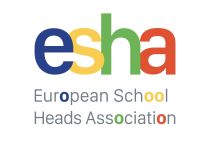
ESHA, the European School Heads Association, is a professional organization for European School Heads. Members of ESHA are national organizations for school heads and deputy school heads within (pre-) primary, secondary and vocational education. Nearly all European countries (both EU and non-EU) are represented within ESHA by one or more organizations.
ESHA is an international community in which experiences, visions and views between members are exchanged and in which new ideas are born. ESHA connects school leaders, researchers and policy makers with the collective aim to learn from each other and improve education.
The European Commission’s support for the production of this publication does not constitute an endorsement of the contents which reflects the views only of the authors, and the Commission cannot be held responsible for any use which may be made of the information contained therein.
[Project Number: 2021-1-BG01-KA 220-SCH-000032711]